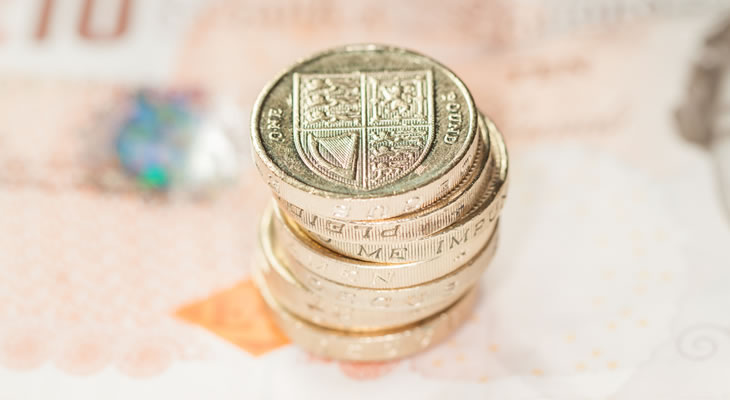- UPDATE: Germany on track to break EU current account surplus limits by 2.5%
- UPDATE: 2016 Q1 UK trade deficit worst since 2008
- Mark Carney rumoured to have asked banks if they could handle lower rates
- ‘Brexit’ arguments return; Johnson claims EU to blame for rising far-right attitudes
- Investor confidence rises, but Euro softened by Greek debt talks
- Forecast: UK and German trade balance figures could create volatility
Rising German Current Account Surplus could Cause ECB Tension
Some market commentators are speculating that the latest strong trade figures from Germany could do more harm than good. Germany’s current account balance jumped over €9 billion in March to hit €30.4 billion. At the current rate, Germany will end this year with a surplus of 8.5% of GDP; 2.5% more than EU rules.
Germany has come under fire from the European Central Bank (ECB) and International Monetary Fund (IMF), who accuse it of leeching funds from the Eurozone economy. They claim the German government needs to invest more money to drive up domestic demand for foreign goods, which would boost imports from other Eurozone countries and therefore increase their GDP.
Mario Draghi has retorted to German criticism of low interest rates by claiming that German’s huge current account surplus is part of the problem, siphoning off funds from the Eurozone which could be promoting growth and therefore creating the need for central bank stimulus.
As a result, the Euro has fallen verses the Pound.
Pound (GBP) Remains Strong in Spite of Largest Quarterly Trade Deficit Since 2008
A £1.9 billion rise in imports, compared to an increase of £500 million in exports, in the first three months of 2016 has pushed the Q1 trade deficit to its widest point since 2008. Monthly deficits all narrowed further-than-expected, but the first quarter performance has been described by one economist, ISH Global Insight’s Howard Archer, as ‘truly horrible’.
GBP/EUR has remained strong, however.
Earlier…
News that the Bank of England (BoE) could cut interest rates has weakened the Pound Sterling to Euro (GBP/EUR) exchange rate today. Meanwhile, the positive effect of strong Eurozone data has been muted by ongoing Greek debt relief discussions.
Fears of BoE Rate Cut Weaken Pound (GBP) as ‘Brexit’ Debate Heats Up
Disappointing economic data and the impact of ‘Brexit’ uncertainty upon the UK economy could prompt an interest rate cut, investors fear. Having been frozen at an historical low of 0.5% since March 2009, it had long been anticipated that the next move for interest rates would be up. However, recent developments and referendum fears have seen investors change their outlook. The risks are now to the downside, with investors believing it will be the end of 2019 before rates are increased twenty five basis points.
According to Martin Beck, Oxford Economics’ Senior Economist, ‘A run of weak activity surveys for April suggest that the economy may see growth in the second quarter slow compared to the first quarter’s already insipid performance. Uncertainty caused by June’s EU referendum has been widely blamed. But with the economy slackening well before the referendum date was announced, it is difficult to believe that this is the only story.’
As a result, Beck claims ‘the possibility of a cut in interest rates is looking ever less outlandish.’
Meanwhile, David Cameron and Boris Johnson have both given major speeches in support of their respective referendum campaigns. David Cameron suggested that the EU was a force for peace and that a break-up of the union could lead to war. However, Boris Johnson disputed his claims, noting:
‘In Austria the far-right have just won an election for the first time since the 1930s. The French National Front are on the march in France, and Marine le Pen may do well in the Presidential elections. You could not say that EU integration is promoting either mutual understanding or moderation, and the economic consequence range from nugatory to disastrous.’
Euro Advance on Pound Sterling (EUR/GBP) Curbed by Greek Debt Talks

While the Euro has managed to hold positive territory verses Pound Sterling today, gains motivated by solid data have been limited thanks to continuing negotiations over Greek debt. German factory orders rose 1.9% on the month in March, eclipsing forecasts of a 0.6% gain, while year-on-year (YoY) orders rose 1.7% against predictions of virtually no growth. The Eurozone Sentix Investor Confidence index also bettered forecasts, rising from 5.7 to 6.2 rather than registering the predicted score of 6.
However, the omnipresent negotiations over Greek debt have continued to weaken Euro sentiment today. The latest bailout of around €5 billion (£3.95 billion) has potentially been unlocked after Athens passed additional tax and pension reforms today. The long term future of Greece’s debt remains obscure, though.
The main issue is that Greece’s Eurozone creditors disagree with the International Monetary Fund (IMF) regarding the level of austerity measures the Hellenic nation should have to implement in order to meet its budget targets. Analysis of the country’s current debt trajectory currently points to two extreme cases; by 2060 Greece’s debt could have been reduced to 62.6% of GDP if carefully managed, or in a worst-case scenario it could balloon to 258.3% of GDP.
The IMF wants harsher austerity measures put in place, but this is a volatile issue politically; Greece’s ruling Syriza party won power thanks to their anti-austerity policies. They have already seen a significant reduction in their majority in Parliament and have lost popularity with voters for reneging on their promises.
Pound Sterling to Euro (GBP/EUR) Exchange Rate Forecast: Trade Balance Figures on Tap
Tomorrow sees the release of German industrial production figures and trade balance data for both Germany and the UK. The UK’s trade deficits are expected to narrow slightly, with the exception of the non-EU trade balance, which is forecast to widen from -£3357 million to -£3600 million.
German industrial production is expected to have declined -0.2% on the month in March, while year-on-year (YoY) production growth is predicted to have slowed from 1.3% to 1.1%. The trade surplus is predicted to have ticked up from 20.3 billion to 20.6 billion.
Current GBP, EUR Conversion Rates
The Pound Sterling to Euro (GBP/EUR) exchange rate is currently trading between 1.2604 and 1.2710, while the Euro to Pound Sterling (EUR/GBP) exchange rate is trending between 0.7866 and 0.7930.


Comments are closed.